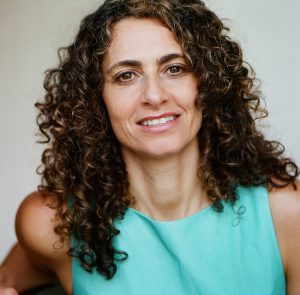Ep. 48: Michael Leviton, Chef-advocate, food system reformer -ft. cohost: Scott Soares, past Mass Ag Commish & shellfish farming leader ||
.
On episode 48 we welcome celebrated chef, advocate and food system reformer – Michael Leviton. As past chef-owner of Boston area favorites Lumière and Area Four, Michael has recently spawned “Region Foodworks” – an initiative providing regionally sourced and produced bulk products for the institutional food service market.
 After working alongside some of the world’s best chefs at Square One, Le Cirque, and La Bernadin – Michael Leviton returned to his hometown of Newton, Massachusetts in 1999 to open Lumière. In Lumière’s first two years in business, the restaurant was recognized as one of the Best New Restaurants in America by Bon Appétit, and Michael was named a Best New Chef by Food & Wine. In 2011, Leviton opened Area Four, a wood-burning oven/bar and attached coffeehouse/bakery. Modern and minimalistic in both menu and design, each property earned local and national recognition for serving highest quality product, sourced locally and all scratch made, at a price point and in a setting that is accessible to all.
After working alongside some of the world’s best chefs at Square One, Le Cirque, and La Bernadin – Michael Leviton returned to his hometown of Newton, Massachusetts in 1999 to open Lumière. In Lumière’s first two years in business, the restaurant was recognized as one of the Best New Restaurants in America by Bon Appétit, and Michael was named a Best New Chef by Food & Wine. In 2011, Leviton opened Area Four, a wood-burning oven/bar and attached coffeehouse/bakery. Modern and minimalistic in both menu and design, each property earned local and national recognition for serving highest quality product, sourced locally and all scratch made, at a price point and in a setting that is accessible to all.
.
Tune-In to our conversation to hear how Michael’s experience San Francisco, New York and in Paris influenced this launch of these world-renowned restaurants in the suburbs of Boston. Sourcing local food from regional farms using elevated production standards in the Northeast is surely how Leviton cast his name. But, his influence has since created a movement – and not just here, in the Northeast. Leviton’s time as chair of the organization ‘The Chef’s Collaborative‘ from 2010-2014 influenced a generation of top chefs. He’s established a tree of disciples and understudies who share similar interest for values in the food and neighborhoods they serve. In fact, he’s cultivated a formula that when put in the proper hands can be overlaid in many metropolitan burbs throughout the US.
.
Joining the chat as co-host is Scott Soares – former commissioner of Massachusetts Agriculture, and served as the Director of USDA Rural Development for Connecticut, Massachusetts and Rhode Island for the Obama administration. Scott has 15 years of fishery and aquaculture experience prior to that – including early in his career serving as the 1st Massachusetts coordinator of aquaculture for nearly a decade.
.
The scale that Leviton works in has changed, but he’s maintained a commitment to food’s value throughout each market he enters. As he explains – he didn’t start a chefs movement towards more local food on the East Coast, but he’s surely instigated i! And now, as a rock start of local and sustainable food – Michael Leviton is leveraging his voice to make more great things happen.
@MLeviton1
co-host:
Scott Soares
- Past Commissioner MA Agriculture
- Dir. USDA Rural Dev Northeast for Obama administration
- 15 years of fishery & Aquaculture experience
- Served as 1st MA coordinator of aquaculture for a decade
@SjSoares65


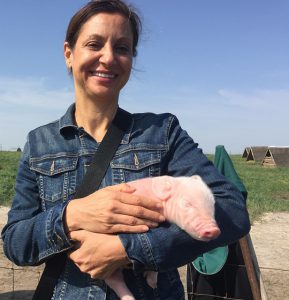 The “ChooseFood” gathering was a collective effort of the Johns Hopkins Berman Institute of Bioethics, the Johns Hopkins Bloomberg School of Public Health, and the Hopkins Center for a Livable Future. The goal of the event was to evaluate the broad reaching ethics of food, and its production. Issues like Labor, environmental impact, externalities, animal welfare, health risk factors & new tech were all part of the ethical questions for food. Maisie was asked to share with the group some of the impact her work has had, and how the commitments at Bon Appétit have influenced some vast changes in the foodservice industry.
The “ChooseFood” gathering was a collective effort of the Johns Hopkins Berman Institute of Bioethics, the Johns Hopkins Bloomberg School of Public Health, and the Hopkins Center for a Livable Future. The goal of the event was to evaluate the broad reaching ethics of food, and its production. Issues like Labor, environmental impact, externalities, animal welfare, health risk factors & new tech were all part of the ethical questions for food. Maisie was asked to share with the group some of the impact her work has had, and how the commitments at Bon Appétit have influenced some vast changes in the foodservice industry.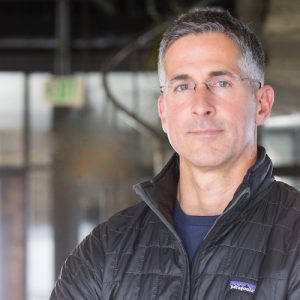 Prior to Thrive, McIntosh was the founding Director of Sustainability & Corporate Citizenship at Nestlé Waters North America, the $4B division of the world’s largest consumer water company. At Nestlé Waters, Alex developed the vision and strategic plan, and provided hands-on leadership to build the corporation’s first sustainability program from the ground up during a time of intense social scrutiny. Prior to Nestlé, Alex was Director of Philanthropy at The Nature Conservancy, where he helped raise a record $75MM in private capital for two of the largest watershed conservation projects in the organization’s history.
Prior to Thrive, McIntosh was the founding Director of Sustainability & Corporate Citizenship at Nestlé Waters North America, the $4B division of the world’s largest consumer water company. At Nestlé Waters, Alex developed the vision and strategic plan, and provided hands-on leadership to build the corporation’s first sustainability program from the ground up during a time of intense social scrutiny. Prior to Nestlé, Alex was Director of Philanthropy at The Nature Conservancy, where he helped raise a record $75MM in private capital for two of the largest watershed conservation projects in the organization’s history.
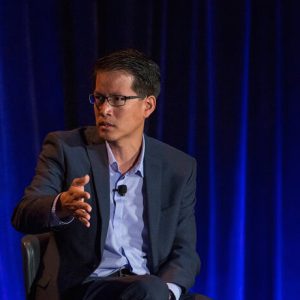 Until 2014, Stacey served as the managing director of the health care practice at
Until 2014, Stacey served as the managing director of the health care practice at 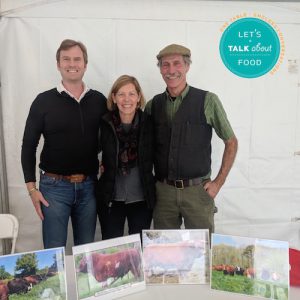 Sourcing Matters ep. 41: “Systems Thinking in food production”– live recorded at the “Let’s talk about Food” festival at Harvard University – looks at harmonizing with more natural systems, and evaluates better management practice that could be used to produce our food in the future. Host Aaron Niederhelman will guide the discussion to cover diverse topics. Not the least of which a process that’s being used to sequester carbon through reengaging the natural system of our living soils – on the hoof. Additionally, one of the most under valued workforce in food production – pollinators. And, it’ll be a conversation that clearly detail how what you eat is the most impactful vote you have to positively benefit your health and that of your family, to increase global stability and to mitigate climate change. So, If you’re an environmentalist, a humanitarian, a patriot, a doctor, or even that you just want to look and feel better – tune-in and learn how your grocery budget can change the world.
Sourcing Matters ep. 41: “Systems Thinking in food production”– live recorded at the “Let’s talk about Food” festival at Harvard University – looks at harmonizing with more natural systems, and evaluates better management practice that could be used to produce our food in the future. Host Aaron Niederhelman will guide the discussion to cover diverse topics. Not the least of which a process that’s being used to sequester carbon through reengaging the natural system of our living soils – on the hoof. Additionally, one of the most under valued workforce in food production – pollinators. And, it’ll be a conversation that clearly detail how what you eat is the most impactful vote you have to positively benefit your health and that of your family, to increase global stability and to mitigate climate change. So, If you’re an environmentalist, a humanitarian, a patriot, a doctor, or even that you just want to look and feel better – tune-in and learn how your grocery budget can change the world.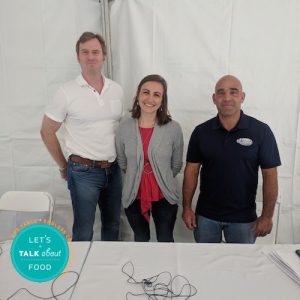 Sourcing Matters ep.
Sourcing Matters ep. 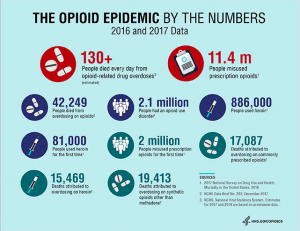
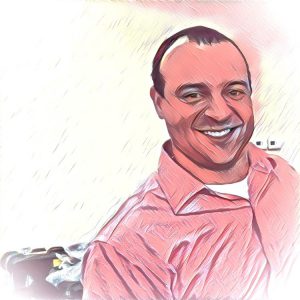 Last, Scott Murphy serves as President of Veterans for Safe Access to Compassionate Care. An organization fighting for smart, just pain management programs for their brethren; for every community, and for every family as a proactive plan against this epidemic.
Last, Scott Murphy serves as President of Veterans for Safe Access to Compassionate Care. An organization fighting for smart, just pain management programs for their brethren; for every community, and for every family as a proactive plan against this epidemic. Previous to beginning his work at the CLF in 2011, Martin was the Executive Director of the PEW Commission on Industrial Farm Animal Production. Martin managed a comprehensive two-year, $3.6 million study that led to the publication of eight technical reports and a final 122-page report on the public health, environmental, animal welfare and rural community impacts of our conventional methods for producing meat, dairy and eggs. The report – Putting Meat on the Table: Industrial Farm Animal Production in America defined a seminal moment of awareness in US production, food systems and supporting a shared one-health. It’s been a significant part of our realization that the approach we’re using to raise animals has broad reaching human and public health impact that needs immediate attention.
Previous to beginning his work at the CLF in 2011, Martin was the Executive Director of the PEW Commission on Industrial Farm Animal Production. Martin managed a comprehensive two-year, $3.6 million study that led to the publication of eight technical reports and a final 122-page report on the public health, environmental, animal welfare and rural community impacts of our conventional methods for producing meat, dairy and eggs. The report – Putting Meat on the Table: Industrial Farm Animal Production in America defined a seminal moment of awareness in US production, food systems and supporting a shared one-health. It’s been a significant part of our realization that the approach we’re using to raise animals has broad reaching human and public health impact that needs immediate attention.